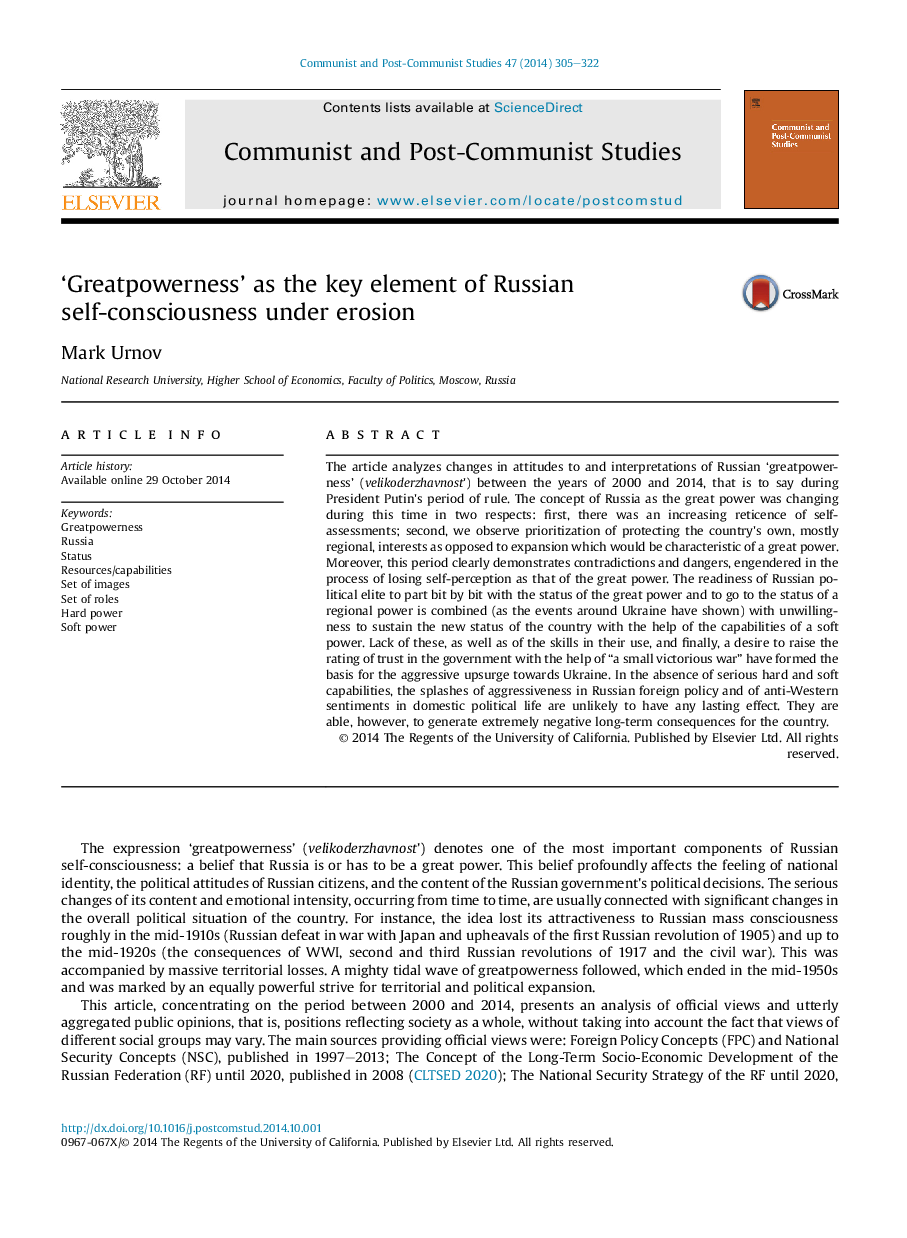| Article ID | Journal | Published Year | Pages | File Type |
|---|---|---|---|---|
| 1046358 | Communist and Post-Communist Studies | 2014 | 18 Pages |
The article analyzes changes in attitudes to and interpretations of Russian ‘greatpowerness’ (velikoderzhavnost') between the years of 2000 and 2014, that is to say during President Putin's period of rule. The concept of Russia as the great power was changing during this time in two respects: first, there was an increasing reticence of self-assessments; second, we observe prioritization of protecting the country's own, mostly regional, interests as opposed to expansion which would be characteristic of a great power. Moreover, this period clearly demonstrates contradictions and dangers, engendered in the process of losing self-perception as that of the great power. The readiness of Russian political elite to part bit by bit with the status of the great power and to go to the status of a regional power is combined (as the events around Ukraine have shown) with unwillingness to sustain the new status of the country with the help of the capabilities of a soft power. Lack of these, as well as of the skills in their use, and finally, a desire to raise the rating of trust in the government with the help of “a small victorious war” have formed the basis for the aggressive upsurge towards Ukraine. In the absence of serious hard and soft capabilities, the splashes of aggressiveness in Russian foreign policy and of anti-Western sentiments in domestic political life are unlikely to have any lasting effect. They are able, however, to generate extremely negative long-term consequences for the country.
